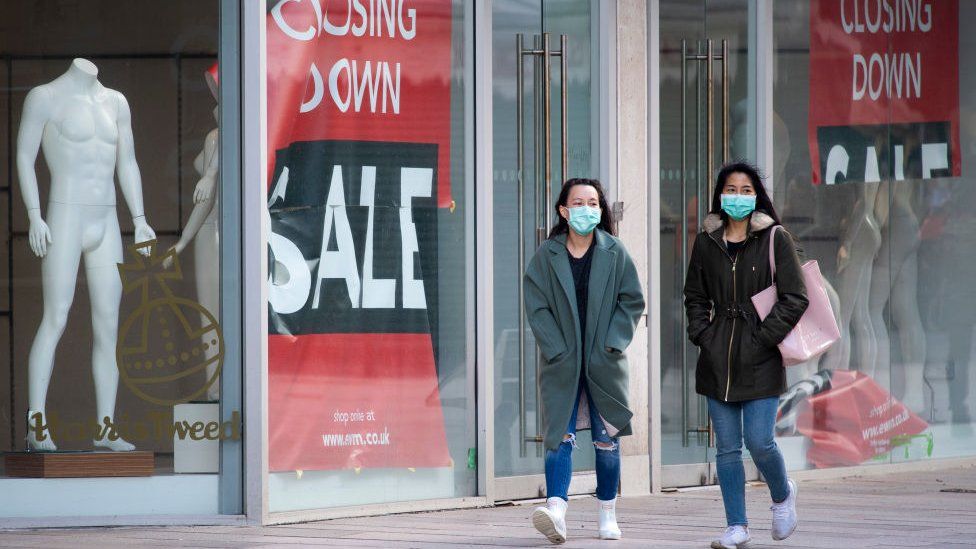The UK economy shrank by 1.5% in the first quarter of 2021, as the country experienced a lengthy winter lockdown.

School closures and a large fall in retail sales earlier in the quarter dragged down economic growth, said the Office for National Statistics.
The economy is now 8.7% smaller than where it was before the pandemic.
However, there was a strong recovery in March with the economy growing 2.1% boosted by retail spending and the return of schools.
“The strong recovery seen in March, led by retail and the return of schools, was not enough to prevent the UK economy contracting over the first quarter as a whole, with the lockdown affecting much of the services sector,” said Darren Morgan, ONS director of economic statistics.
However, the ONS said the construction industry had grown strongly and was now above its pre-pandemic level.
Chancellor Rishi Sunak said: “Despite a difficult start to this year, economic growth in March is a promising sign of things to come.”
Tej Parikh, chief economist at the Institute of Directors, predicted the UK economy is on course for a bumper bounce-back this year.
“The first quarter should mark the low point for the economy in 2021,” he said. “The lockdown, and added costs of navigating new trading terms with the EU, limited many businesses’ trading activities at the start of the year.”
But the vaccine rollout, the extension of support measures at the Budget, and the roadmap to reopen the economy has helped build directors’ confidence for the months ahead, he said.
Confidence
Suren Thiru, head of economics at the British Chambers of Commerce, said the decline in economic output in the first quarter largely reflected the squeeze on activity from coronavirus restrictions, which was partly offset by growing business resilience to those restrictions and a monthly boost from the reopening of schools in March.
“The first quarter decline should be followed by a robust rebound in the second quarter as the effects of the release of pent-up demand, as restrictions ease and the strong vaccine rollout, are fully felt,” he said.
But he warned that the longer-term economic damage caused by coronavirus may mean the recovery is slower than many, including the Bank of England, currently predict.

